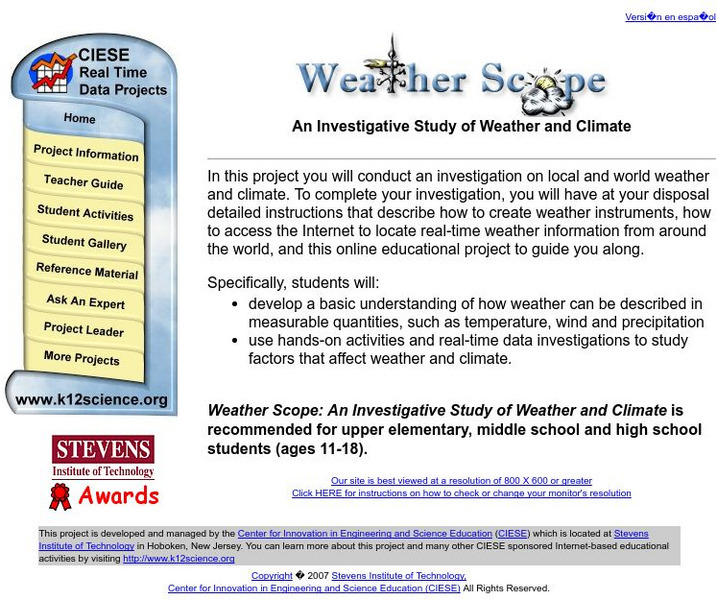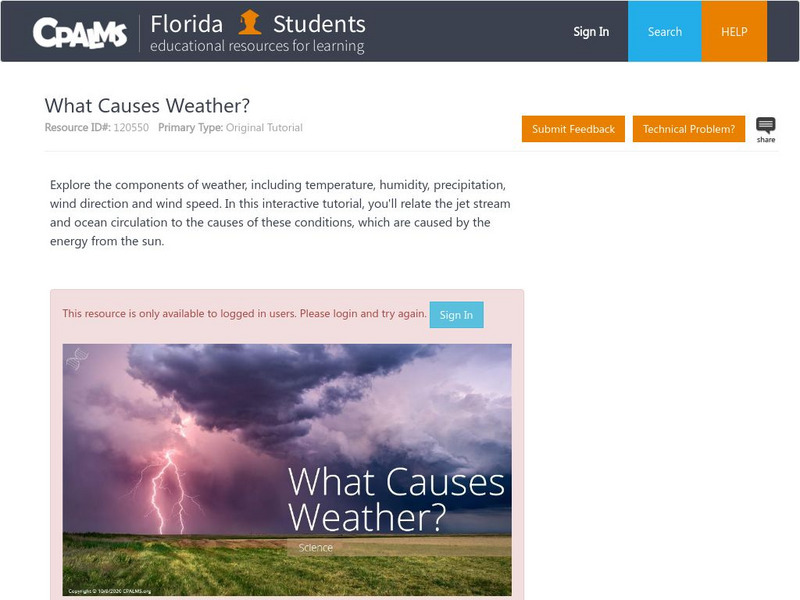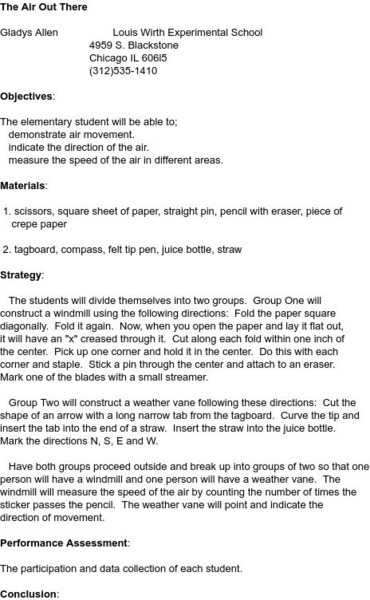Curated OER
Wonderful, Wild Weather
Young scholars study the different types of weather, how it affect what they wear, and how it is related to the seasons. They compare the seasons and tell how they prepare for the change in seasons. They design a creative presentation...
Curated OER
Science: Avalanche!
Eighth graders examine avalanches after reading excerpts from John Muir's book, "The Yosemite." In small groups, they conduct experiments with flour, sugar, and potato flakes representing different snow consistencies. Then, 8th graders...
Curated OER
SkyHighScrapers
Learners investigate quadratic functions. In this Algebra I/Algebra II lesson, students determine the equation of a quadratic function that closely matches a set of points. Learners investigate the necessary information that...
Curated OER
The Science of Weather: How Doppler Radar reads weather
Students read about how radar detects changes in the weather. In this lesson on weather reporting, students read a diagram that shows how radar reads weather. This lesson includes discussion questions and an individual activity that can...
Curated OER
Naval Battles in the Age of Sail
Young scholars compare and contrast British and American/Allied naval losses during the American Revolution. They recognize factors affecting the outcome of a naval battle and describe a naval battle from the age of sail.
Curated OER
Hurricanes 2: Tracking Hurricanes
Students examine the role of technology in identifying and tracking hurricanes.
Curated OER
The Couplet
Students create the sounds of a thunderstorm with a symphony of body percussion to compose a couplet about rain using Microsoft word to publish. They are introduced to rhyming dictionaries and thesauruses and use Internet sources for...
Curated OER
Sailing Through Bernoulli
Students participate in a class discussion about Bernoulli's principle while looking at cross-sections of an airplane wing, and discussing the sail on a sailboat and the spoiler on a race car.
Curated OER
Wright Flight
Students explain and explain the interactive relationships between forces of lift and gravity, thrust and drag, as they apply to airplanes in motion. They know that Orville and Wilbur Wright flew the first airplane based on these...
Curated OER
#22 Frames of Reference: The Basics
Students explore the concept of frames of reference in physics.
Curated OER
Avalanche!
Learners explain that when forces on an object are balanced, the motion of object does not change. They describe how an object changes its motion when forces on it are unbalanced. They plan and conduct a scientific investigation to test...
Curated OER
Meteorology
Seventh graders examine the job of meteorologists. They decide which characteristics of the atmosphere that meteorologists focus on. They use local weather maps from newspapers to predict weather in their area.
Curated OER
Traffic Sign Matching
For this matching worksheet, students match pictures of traffic signs to the written description. There are twenty-nine different signs and descriptions for students to match.
Utah Education Network
Uen: Trb 4:2 Investigation 3 Wind
Learn how to measure the direction and speed of wind.
Other
California Energy Commission: Science Projects: Make an Anemometer
Nice brief description of this wind speed device and the directions to make your own.
Weather Wiz Kids
Weather Wiz Kids: Wind
Wind is air in motion. It is produced by the uneven heating of the earth's surface by the sun. Since the earth's surface is made of various land and water formations, it absorbs the sun's radiation unevenly. Two factors are necessary to...
Center for Innovation in Engineering and Science Education, Stevens Institute of Technology
Ciese Real Time Data Projects: Weather Scope: A Study of Weather and Climate
Use real-time data to study factors that affect weather and climate, create weather instruments, and share data with students around the world.
Math Graphs
Houghton Mifflin: Math Graphs: Direction and Vectors 3 [Pdf]
Students use a weather map to determine the points where the wind speed is the greatest. The resource consists of an enlarged printable version of a weather map available in PDF format.
American Geosciences Institute
American Geosciences Institute: Earth Science Week: Build Your Own Weather Station
Students are guided in how to build their own weather station that will measure temperature, humidity, precipitation, atmospheric pressure, and wind direction and speed.
CPALMS
Florida State University Cpalms: Florida Students: What Causes Weather?
Determine parameters of weather; including specifically temperature, humidity, precipitation, wind direction and wind speed in this tutorial. During this tutorial, you will relate the jet stream and ocean circulation to the causes of...
PBS
Nova: A Five Day View of the Jet Stream
This animated 5 day forecast for the jet stream shows wind direction and wind speed. The forecast was generated on January 1, 2001 by the Fleet Numerical Meteorology and Oceanography Center.
Other
Ithaca Hs Ny/electrical Generator Ac or Dc/applet
What a lovely little applet! You can speed/slow it, change it from AC to DC, plot the voltage as it rotates, change direction, control other information. Real neat.
Science and Mathematics Initiative for Learning Enhancement (SMILE)
Smile: The Air Out There
Cooperative learning activity in which pupils will create a windmill and a weather vane. Students will find the direction of wind and the speed relative to the spinning windmill. Great for K-2.
PBS
Pbs Nova: Pilot the Wright Brothers' Flyer
In this interactive, find out how the Wright brothers' design of the first flyer provided lift and speed, and allowed the pilot to make adjustments in response to changes in wind speed and direction.























